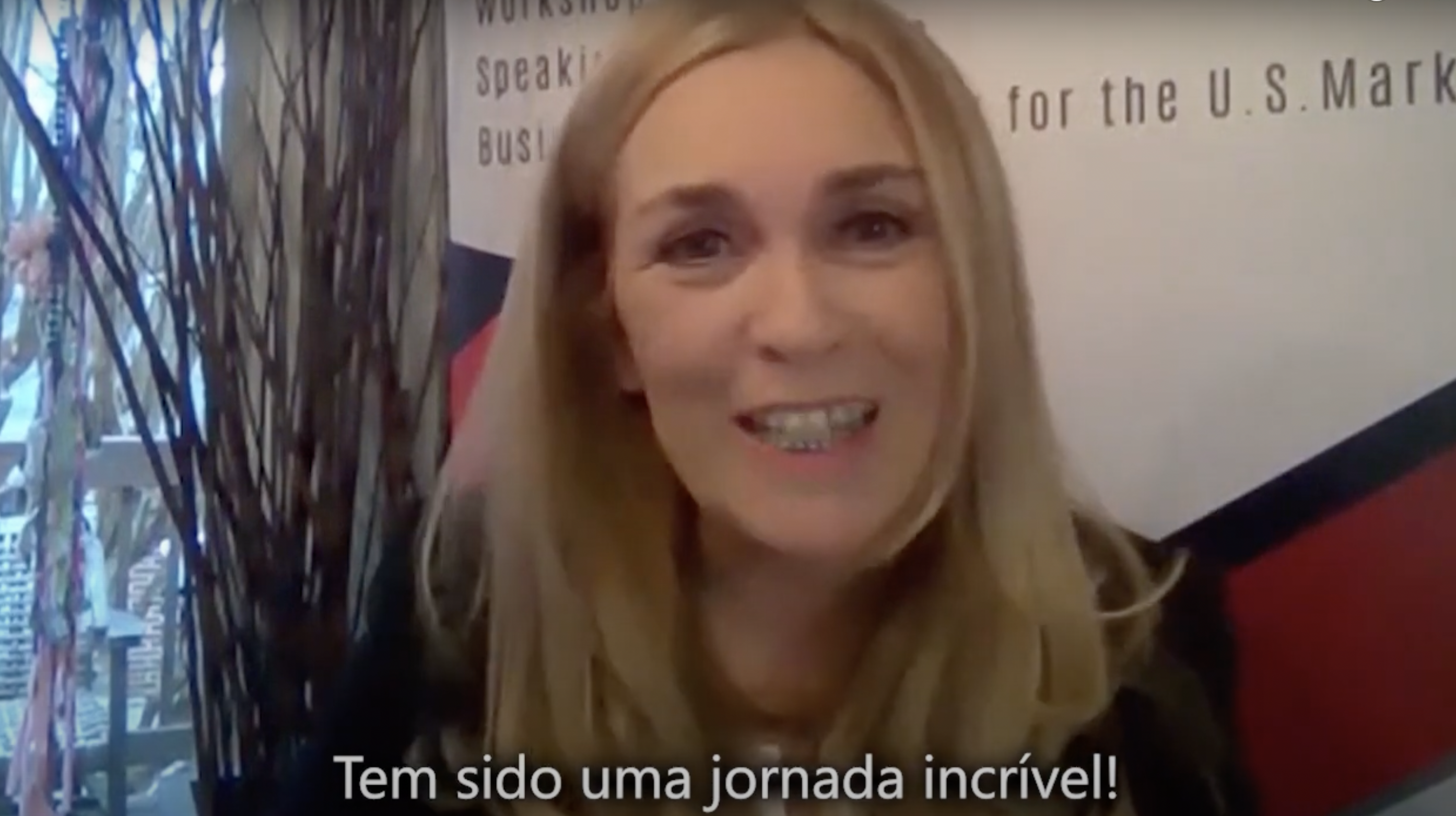ACTIVE RESEARCH: CULTURAL BRIDGES FOR BUSINESS – EUROPEAN COMPANIES EXPANDING TO THE U.S.
When you start hearing that little voice on the back of your head saying, “As soon as we lay foot in the US everyone will want our product and our service… over 300 million people, one language, one culture, we will start selling like crazy!!” Forget it, that is not going to happen! Why not? you ask. You have been so successful in Europe and maybe even in other parts of the world, your product is innovative and reliable, your technology is advanced, you’re one of the best in your field… Why wouldn’t Americans immediately embrace your knowledge, your experience, your amazing technology?! Let me tell you why: Because Americans do things differently from Europeans.
Why wouldn’t Americans immediately embrace
your knowledge, your experience, your amazing
technology?!
My last article, in this series, discussed why European companies decided to invest in the U.S. and how critical it is to have a clear purpose supporting their actions when challenged by the reality of the U.S. market. Today’s article discusses how important it is not to rely exclusively on how good your product or technology are; how unique your approach to the market is, or how qualified you are in your industry, but instead, to do the effort to gain the market’s attention and stand out from the crowd.
Before making the move to the U.S. – Companies participating in my study had the following perceptions:
•44.4% of the companies perceived themselves as having the best technology and know-how (software or machinery); as being the most innovative and having the best product; or as having the most cost-efficient production process, enabling them to be very competitive in their field.
•31.6% of the companies, although perceiving themselves as having a product similar to competitors, their competitive advantage was the uniqueness of their market approach, making the customer’s experience positively differentiated.
•8.4% of the companies perceived themselves as having the lowest price when compared to their competitors, while presenting the same level of quality.
•7.9% perceived themselves as specialized in a specific niche, being highly qualified for that niche.
After making the move:
When setting foot in the US, however, most of the companies quickly realized things were not as easy as they had thought, facing a totally different reality. Hollywood movies make America seem closer and very familiar to most Europeans. Europeans consume American music, movies and iPhones, they speak English and travel to the U.S. on vacations. All of this gives the false impression of knowing the American culture well and believing it easy to navigate. Success is mistakenly taken for granted.
Key finding – Most of the companies participating in my study discovered, after entering the U.S. market that, although having a revolutionary product, technology, service or unique market approach, they underestimated the American decision-buying process, taking them longer to learn how to navigate the market and be noticed and respected in their field to be considered a valuable option for their potential customers. Although, many of these companies, were already very successful in Europe and in other parts of the world, none of them experienced immediate success when entering the U.S. market.
If your brand is not yet well-known in the U.S., it will take time getting your message across and being perceived as a highly valuable offer in your field. Getting the first customer and building a good customer base in the U.S. market will take longer then you expect. You need to be mentally robust and financially prepared for that. It takes time to build trust from prospective customers and it will demand permanent and focused work, creativity and perseverance.
81% of the companies in my research, perceived
themselves as highly or very highly differentiated,
at the time of investment”.
Anton F. Mertens, an Immigration lawyer originally from Belgium, expert in immigration visas and Partner at Burr Forman, LLP, says: “Business is tough in the US. Many times, Europeans come here looking for a way to get a VISA to stay and do business but, without a 5-year business plan and money it is not going to work. Some Europeans come with, what they believe to be a great idea, 50.000 USD no business plan, and they want to create a successful business and make money. That is not likely to happen”.
VITEC Inc, a French -based company in Atlanta, GA, USA
I interviewed Lionel Zajde, former Managing Director for VITEC, a medium sized privately owned, French-based company in the digital video industry. VITEC provides worldwide, end-to-end video streaming solutions for broadcast, military and government, enterprises, sports and entertainment. Founded in France in 1988, VITEC soon started expanding internationally as part of their growth plan, and in 1997 opened their U.S. operation. Although the technology they used already existed in the U.S, the industry was in a fast-growing pace with many possibilities being presented to the players, given the size of the US market.
Like many other European companies expanding to the U.S., VITEC started with only two employees focused on sales and support, with all technical development being executed in France. As Zajde recalls, their strategy for the U.S. market approach was to move slowly, step by step, minimizing, as much as possible, any financial risks.
Looking back, Zajde says: “You don’t do things gradually in the US, things are done in a larger scale to show up in the market and close deals. If you take slow steps looking for customers, you will be buried in the noise and no one will notice you. Breaking through in this market requires money. European companies normally have good products, better balance sheets than American companies but they struggle to succeed if they don’t invest hard in showing the market who they are. It is amazing how Europeans underestimate the competition for their products in the U.S. There are so many companies doing what you do, so you need to stand out from the crowd or you’ll always be second best and never get the deal. Here they don’t buy a product, they buy the relationship you establish with them and the emotion behind what you’re selling”.
VITEC’s Challenge in the U.S.
Despite all efforts, VITEC’S first approach to the US market didn’t work out. They had a good and competitive product, they had a good customer service, but they didn’t realize how much money it would take to create and maintain their operation in the US. Their strategy of a slow approach to the market, taking small steps, was starting to become a challenge to make money and pay the expenses. VITEC went through a difficult financial situation at that time, deciding to close the U.S. office and reopen, but this time, from Zajde’s home office in the Metro Atlanta area.
Zajde says: “You will need money to be in the U.S. If you don’t have money don’t go. The market will demand investments on trade shows and traveling to meet with potential customers even knowing you might not close any deal. If you don’t have the money to finance this way of showing up in the U.S. market for 2 or 3 years, then don’t do it. Engaging with an American customer means having to take immediate action. Companies work in short cycles, they need answers within the hour. The entire business culture is different, you need to respond immediately. Your customer will call 10 companies for the same solution. If you don’t deliver, you are out of the race.”
VITEC’S solution for the U.S. operation:
To succeed in the U.S. you can’t expect to enter the market to sell your technology, product or service at your own pace. You need to come with the attitude of being the solution for your potential customer’s problem.
Zajde believes that a good salesperson in the U.S. doesn’t try to sell in the first interaction with a potential buyer, on the contrary, it’s about being ready to help the person he or she is interacting with, in solving their specific problem. With this approach you will build a relationship with your potential customer, building trust for future opportunities.
As Zajde recalls: “At VITEC we were always supportive of our potential customers, helping them finding a solution for their problem. We would do this day in day out, even knowing we wouldn’t close a deal in that moment. I would tell my sales team not to focus on travel expenses or costs, I wanted them to be on the road, listening to the prospects’ challenges to see how we could help. “Don’t try to sell them anything” Zajde would say, “Let them know we are available to help when they have a need.”
This approach took VITEC’s business to a much higher level when in 2004, they were invited to work with one important customer on a technological integration challenge they were facing. Accepting that deal meant that VITEC would have to move from a merely component supplier to an integrated solution provider. At that moment VITEC had to make the decision to re-invent themselves, changing their whole business model. This contract turned out to be very lucrative, taking the company to a level of growth and profitability they hadn’t foreseen or expected, although depending on this one specific customer for 80% of their revenue.
When asked about the risks of depending on one customer, Zajde responds that the strong and trustworthy relationship and accountability VITEC had with their customer, minimized the risk of this high-level concentration. Additionally, this lucrative contract allowed VITEC to diversify their business by acquiring other companies in their field, expanding their offers to other products and solutions.
Zajde says he has realized in the U.S., in his 20 years with VITEC, two important premises that the French and most Europeans don’t understand: Americans may know a lot of people, but they don’t trust everyone. When they do business or hire people they call their friends, people they trust, for recommendations. They don’t rely on the product or service, they rely on the people behind them.
I would tell my sales team not to focus on travel
expenses or costs, I wanted them to be on the
road, listening to the prospects’ challenges to see
how we could help when expanding to the US.”
The French business culture is very different. In France, it’s all about the product and its features. For the French, the product comes first. In the U.S., the person delivering a good solution in the nicest way gets the deal. The other premise is that in the U.S., the employees are your first customers, they need to buy your company’s philosophy otherwise you’ll get nowhere. In the French business culture, there are very defined hierarchical structures and the formulation and implementation of rational decisions is more important than motivating the people – very different from the U.S.
Zajde continues: “Hire the right people. Understand it’s going to take time and money but it can be very rewarding – you can multiply your turnover by 10 or 100. To get there you have to play by the rules. It can fail if you try to outsmart the system thinking your product is so good that you don’t need to wait. VITEC has many competitors that can replace us but the reason we never lost a customer since 1997 is because of the relationships we have built.”
Lionel Zajde is today the French Trade Advisor for the Southeast of the United States. Although no longer with VITEC, he looks proudly at VITEC’S success wishing for their continuing growth for the future.
VITEC’S story demonstrates that coming to the U.S. requires a shift in perspective and an open-minded approach to listen to the market and play by a different set of rules. In my leadership development and coaching practice, I find that some leaders are resistant to change and have a hard time leaving their comfort zone. After allowing a shift in the way they face their new business environment, new opportunities, and become opened to adapting, things eventually become very rewarding both for the business and their professional career.
The U.S. is much about showing up, networking and building meaningful connections, including with the employees you hire. Building these connections and personal relationships takes time and work to earn the trust. When that happens, then doing business is part of a natural process.
In future articles I will be talking about some cultural misconceptions that, once realized, will allow success to happen.
Cristina da Costa is a Personal & Professional Leadership Developer and Coach based in Atlanta, USA, and an expert in measuring culture in organizations for multinational teams’ productivity and engagement.




